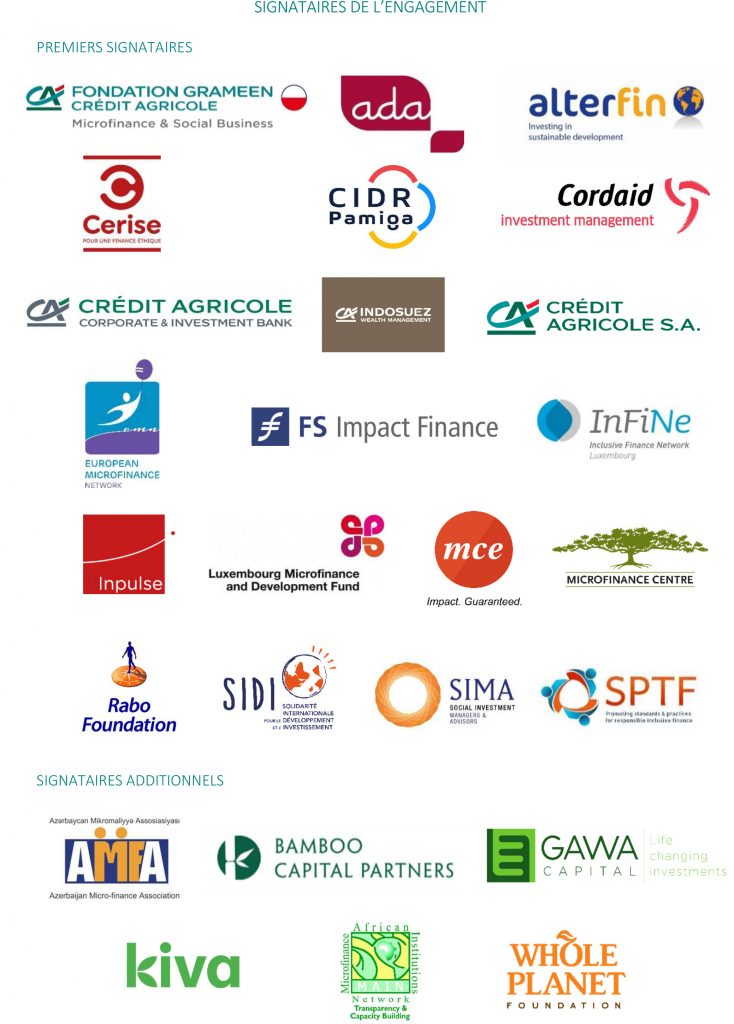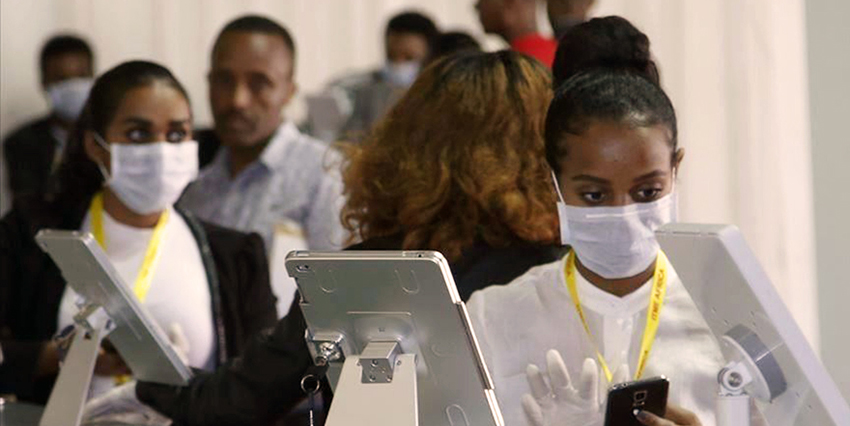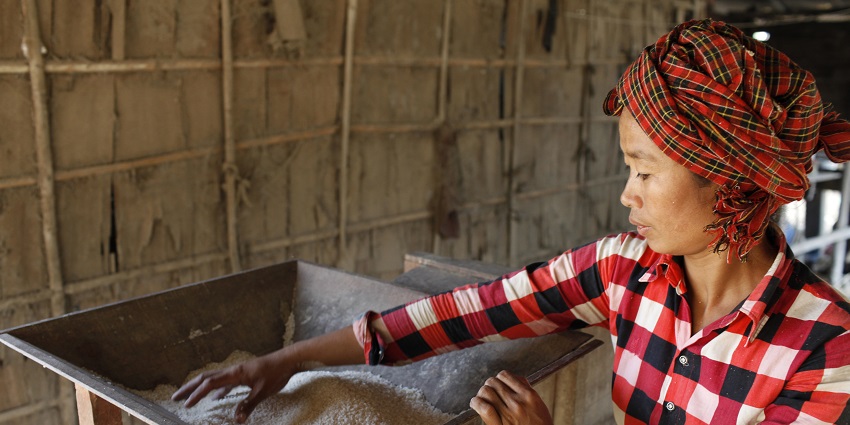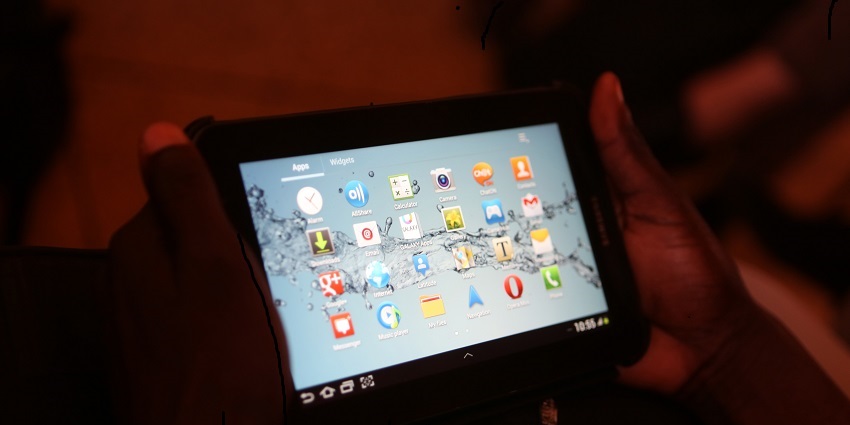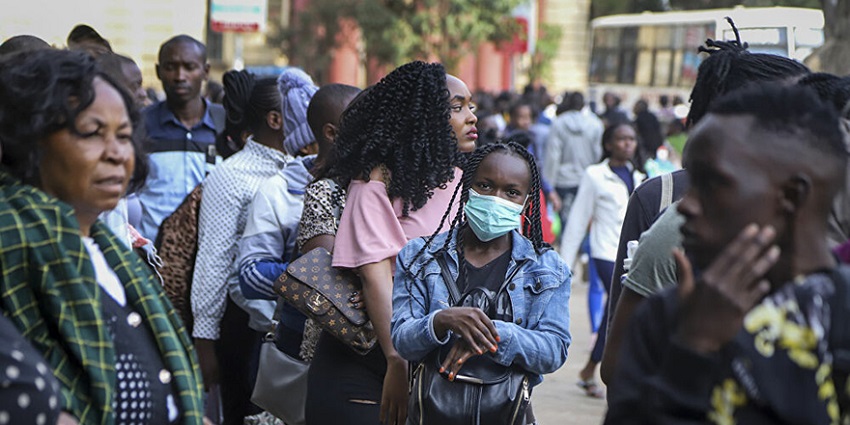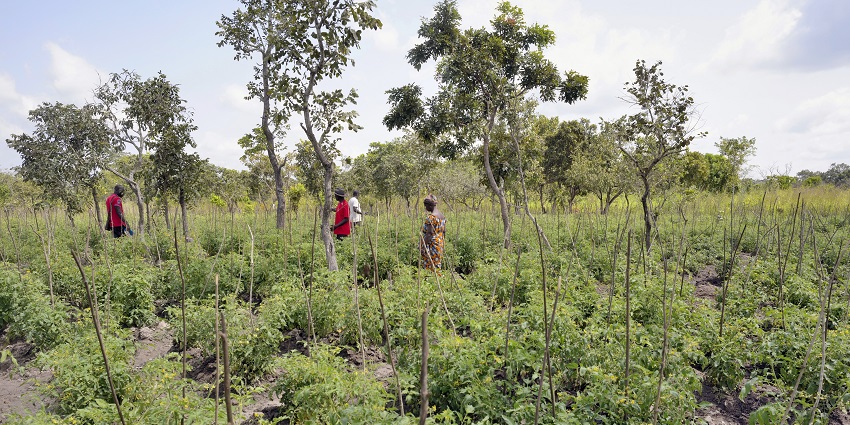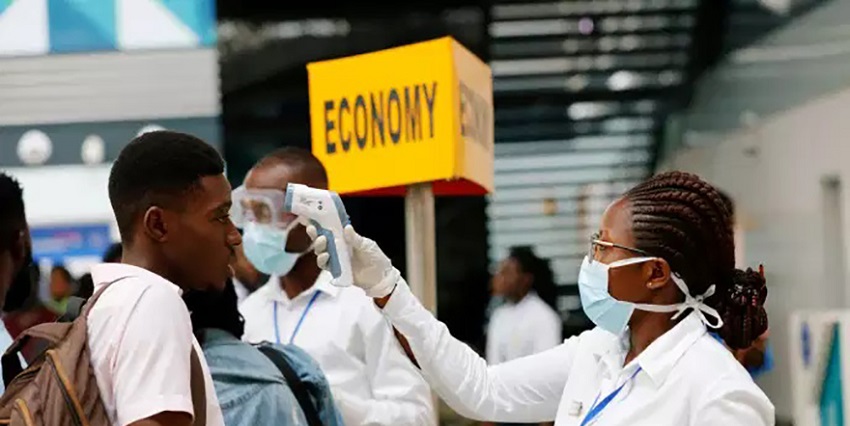By Grameen Crédit Agricole Foundation
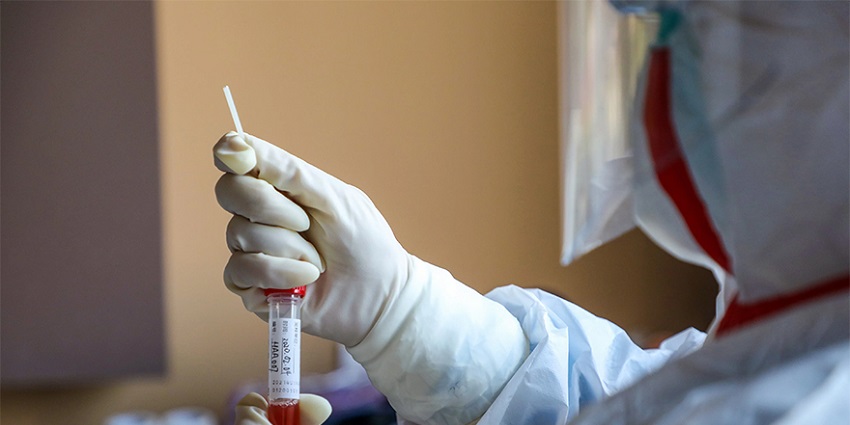
Created in 2008, at the joint initiative of Crédit Agricole SA and Professor Yunus, founder of the Grameen Bank and 2006 Nobel Peace Prize winner, the Grameen Crédit Agricole Foundation is an operator committed to promoting a more shared economy.
An investor, funder, technical assistance provider, and fund advisor, the Foundation has more than 80 partners (microfinance and social business institutions) and operates in some 40 countries with nearly €100 million in outstanding financing. The Foundation focuses on microfinance institutions serving women and rural populations. These institutions support approximately 4 million clients.
The microfinance sector is exposed and worried
On March 19, according to figures from Public Health France, the coronavirus had infected 213,000 people worldwide. 8,800 deaths have been reported. After announcing the closure of many institutions and businesses, containment measures continue to be implemented worldwide. Africa and South America were not officially affected by the virus for a long time, but they are now facing this pandemic with hundreds of cases already identified.
The global health crisis is gradually becoming an economic crisis. Economic activity has slowed in all countries, and stock markets have lost nearly a third of their value in less than a month. The microfinance sector will undoubtedly be severely affected by the effects of this global crisis.
The Grameen Crédit Agricole Foundation team quickly launched a survey of its partners on March 11th to gather their initial impressions and analyses, the impact on their financing activities, their clients' activity, and their anticipation of future needs and challenges. All the information contained in this article comes from this survey. Fifty-six microfinance institutions (MFIs) responded, out of 75 partners surveyed (participation rate of 75%). The final responses were received on March 19th.
All our partners have expressed real concern in their responses about the expected effects of this global health crisis.
Local government decisions are already impacting small income-generating activities
48% of the MFIs surveyed estimated that their clients were already affected by the effects of the coronavirus outbreak at the time of the survey, and 68% of them believe they will be in the near future. In many countries of operation, governments have decided to close schools and non-essential activities, restrict travel, or ban gatherings. This is already the case in Sri Lanka, Cambodia, Romania, Myanmar, Sierra Leone, Jordan, Mali, and other operating countries. These changes are taking place everywhere today, and new countries are added to this list every day.
Such decisions are already having a direct impact on our partners' clients. Many microfinance borrowers rely on imports for their business. Border closures and travel bans have a direct impact on their operations. The travel ban in China affects not only Asian countries but also African countries.
“Since the border with China has been closed, some agricultural product prices are decreasing, so our farmer clients are not getting good prices for their crops.” – Myanmar Microfinance Institution
“We have customers who travel to shop (China, Ivory Coast, Togo, Benin, etc.). Informal traders are afraid, and this could affect their business.” – Microfinance institution in Burkina Faso
The inability to gather impacts all operations taking place in markets and fairs. Traders are prohibited from operating and have no alternative income. The travel ban is severely impacting global tourism and, consequently, all small, local businesses dependent on tourism (hotels, drivers, guides, restaurants, souvenir sellers, etc.). Remittances are declining, which also affects families back home who rely heavily on these transfers.
“If the travel ban continues in the Gulf region and Europe, Jordan’s economy is likely to suffer as it also depends on tourism revenues and remittances from the Gulf” – Jordan Microfinance Institution
With the exception of one case, we have not received any information on the implementation of any economic mitigation plans that local authorities may have put in place, which likely reflects a difficulty in adjusting or intervening in this context, and likely also a lack of accurate data or available budgetary means. The only specific example provided to us is that of Palestine. Through eight guidelines, the Palestinian Monetary Authority intervened by urging financial companies to continue providing lending services to individuals to ensure the continuation of the commercial and economic cycle and to consider deferring the periodic monthly payments of all borrowers for the next four months (six months for the tourism and hospitality sectors). The measures also stipulate that no additional fees, commissions, or interest on deferred payments may be charged during this period.
Financial institutions' activity could contract
Although concerned about the evolution of the crisis and its first signs, 59% (33) of the MFIs surveyed indicated that their activity was not yet affected by the epidemic at the date of the study (between March 11 and 19). 23 MFIs (37%) felt concerned at the time of this survey, giving several explanations such as the risk to field staff, restricted travel, and working from home.
One of the main concerns is the ban on meetings, which will affect all institutions whose microfinance methodology is based on a "solidarity guarantee group" approach. Some partners are already adapting by appointing group representatives to limit meetings or by relying on "group representatives" from among their clients.
In some countries where no clear decision has yet been made, MFIs are considering postponing disbursements if their loan officers are unable to travel or need to temporarily adapt their collections process.
“During the emergency period until May 29, 2020, customer center meetings will not be held as usual. Instead, the “Pay and Go” method has been implemented as follows: only “group leader” clients, two to four people per center of generally 15 to 20 clients, are invited to attend the regular center meeting. Group leaders will collect the deposit from their members.” – Indonesian Microfinance Institution
“We have implemented a special procedure to meet individually with members of the joint and several guarantee groups. We provide advice to clients on how best to deal with the situation.” – Senegalese Microfinance Institution
Our partners must also adapt to the situation faced by their employees by ensuring their health above all else. The risk of virus transmission is an important factor to consider for the work of loan officers. The responses to the questionnaire show that the lockdown rules are directly and immediately preventing the smooth running of business for all departments within the institutions. Some staff members are already working from home in some institutions.
“Almaty, where the head office is located, will be quarantined from March 19, employees will work remotely” – Kazakhstani microfinance institution
“Field staff are at significant risk of contracting the virus, so employees are reluctant to work with clients. The quarantine will hit the entire MFI market.” – Microfinance Institution in Uganda
The risk portfolio and liquidity needs are under surveillance
Many institutions express concern about rising risks. But according to our survey, at the time of their responses, only 11 MFIs (20%) noted an increase in their portfolio at risk. Our African partners seemed more concerned than their peers on other continents. However, a large number of them across all our areas of operation (40 countries across 3 continents, Africa, Asia, and Europe) are worried about the future: 36 MFIs (64%) anticipate an increase in their portfolio at risk.
“We are likely to experience a potential increase in the delinquency portfolio and a reduction in credit demand. This increase in delinquency is expected to be around 2%, but our portfolio growth will undoubtedly slow down.” – Cambodian Microfinance Institution
Surprisingly, a few partners believe they are no more at risk than usual. These reactions come from institutions that are mostly located in rural areas.
“Overall, since our clients are mainly rural (70%), we expect that they will not experience a significant deterioration in their business or income due to the increase in the prices of their agricultural products. We will have a clearer picture in the second half of April.” – Kyrgyzstan Microfinance Institution
“As of March 16, 2020, our business is continuing as usual. We have not yet seen any impact on loan repayments in Cambodia, particularly in Siem Reap and Phnom Penh. However, we expect some increase in Siem Reap starting later this month. In this part of the country, however, our clients live primarily in rural areas. Our exposure to tourism, hospitality, and the service industry is minimal.” – Cambodian Microfinance Institution
This health crisis will have an impact on the liquidity needs of institutions. According to our survey, 29 MFIs (52%) anticipate changes in their financing needs. Most small MFIs (portfolios less than $10 million) do not anticipate changes over time. Their size seems to be a factor in agility, but we are attentive to this point, which does not seem particularly obvious to us. The majority of medium-sized institutions (portfolio size between $10 and $100 million) anticipate changes in their financing needs from donors (including the Grameen Crédit Agricole Foundation). Many institutions expect problems refinancing their activities. An increase in the cost of currency hedging mechanisms is expected, and discussions with the various lenders are or will be initiated shortly.
“Indirectly, the exchange rate is becoming very volatile due to the epidemic. We are seeing an increase in demand for microloans in US dollars and a decrease in demand in local currency, which is affecting the volume of loans we can disburse.” – Myanmar Microfinance Institution
Liquidity problems are anticipated. Indeed, non-repayment by microcredit beneficiaries could hinder the ability to disburse new loans. Rising provisions for risks and potential losses are seen as an obstacle to securing new financing from traditional lenders.
“If the situation continues until mid-year, we will need liquidity as most of the liquid assets will have been wiped out by high provisioning for impaired assets (expected losses) due to rising non-repayment” – Microfinance Institution in Uganda
“Loan default leads to decreased liquidity. Yes, we have taken steps to mitigate this potential situation.” – Malian Microfinance Institution
Microfinance sector calls for appropriate measures
Some MFIs have already asked the Foundation if it would be possible to help their institutions get through the period when the effects of the pandemic will be the harshest.
“We would like advice on how to avoid the disease and on available and effective treatments for treatment in case of infection” – Microfinance Institution of Benin
“We would like the Grameen Crédit Agricole Foundation to compile information on the measures to be put in place to avoid the coronavirus, and also, for institutions around the world, on how to meet the challenges that lie ahead.” – Microfinance institution in Uganda
One partner recalled that during past natural disasters, particularly tailored measures had been put in place. Some, which may seem counterintuitive, had resulted in increased funding to enable clients to recover from the shocks and overcome this difficult period. Drying up funding would only intensify the difficulties and impacts of the crisis.
___________________________________________________________
Discover other articles on: Covid 19 Observatory.

